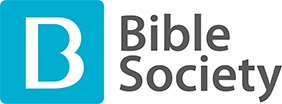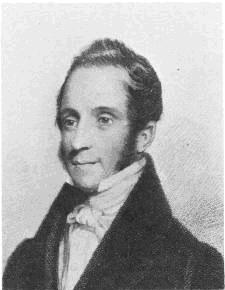
The British and Foreign Bible Society, often known in England and Wales as simply the Bible Society, is a non-denominational Christian Bible society with charity status whose purpose is to make the Bible available throughout the world.
Tolomako is a language of the Oceanic subgroup of Austronesian languages. It is spoken on Santo island in Vanuatu.

Manx literature is literature in the Manx language.

A Bible society is a non-profit organization, usually nondenominational in makeup, devoted to translating, publishing, and distributing the Bible at affordable costs. In recent years they also are increasingly involved in advocating its credibility and trustworthiness in contemporary cultural life. Traditionally Bible society editions contain scripture, without any doctrinal notes or comments, although they may include non-sectarian notes on alternate translations of words, or variations in the different available manuscripts.

The Coverdale Bible, compiled by Myles Coverdale and published in 1535, was the first complete Modern English translation of the Bible, and the first complete printed translation into English. The later editions published in 1537 were the first complete Bibles printed in England. The 1537 folio edition carried the royal licence and was therefore the first officially approved Bible translation in English. The Psalter from the Coverdale Bible was included in the Anglican Book of Common Prayer beginning in 1662, and in all editions of the Episcopal Book of Common Prayer until 1979.

Bible translations into Chinese include translations of the whole or parts of the Bible into any of the levels and varieties of the Chinese language. Publication of early or partial translations began in the nineteenth century, but progress was encumbered by denominational rivalries, theological clashes, linguistic disputes, and practical challenges at least until the publication of the Protestant Chinese Union Version in 1919, which became the basis of standard versions in use today.
Bible Society Australia is an Australian non-profit, non-denominational, Christian organisation. It is part of a worldwide network of Bible Societies.Bible Society Australia maintains that the Bible is a significant historic text which has deeply influenced society and culture and is still relevant today.The organisation is involved in translating, publishing, and distributing the Christian Bible, from print, to audio, to digital versions. Bible Society Australia is also involved in Bible advocacy, the publication of Bible reading materials, and the provision of literacy support, both in Australia and overseas.
The Institute for Bible Translation (IBT) was founded in Stockholm, Sweden in 1973 by the Bosnian-Croatian poet Borislav Arapović, its main task being to publish Bibles for "non-Slavic peoples in Slavic countries," not just Bible translations into the languages of Russia but also Central Asian languages.
Ronga is a south-eastern Bantu language in the Tswa–Ronga family spoken just south of Maputo in Mozambique. It extends a little into South Africa. It has about 650,000 speakers in Mozambique and a further 90,000 in South Africa, with dialects including Konde, Putru and Kalanga.

The Deutsche Bibelgesellschaft is a religious foundation regulated by public law. It is involved in publishing and in spreading the message of the Bible.

The Good News Bible (GNB), also called the Good News Translation (GNT) in the United States, is an English translation of the Bible by the American Bible Society. It was first published as the New Testament under the name Good News for Modern Man in 1966. It was anglicised into British English by the British and Foreign Bible Society with the use of metric measurements for the Commonwealth market. It was formerly known as Today's English Version (TEV), but in 2001 was renamed the Good News Translation in the U.S., because the American Bible Society wished to improve the GNB's image as a "translation" where it had a public perception as a "paraphrase". Despite the official terminology, it is still often referred to as the Good News Bible in the United States. It is also uniquely a multi-denominational translation with editions popularly used by every major Christian denomination. It is published by HarperCollins, a subsidiary of News Corp.

Edward Stallybrass was a British Congregational missionary to the Buryat people of Siberia. He translated the Bible into Mongolian.

The first Romanian Bible translation is the Calvinist Palia de la Orăștie from 1581/1582. The translators were Hungarian Calvinist priests from Transylvania. The first complete translation to Romanian was made in 1688. The Old Testament was translated by Moldavian-born Nicolae Milescu in Constantinople. The translator used as his source a Septuagint published in Frankfurt in 1597. The manuscript was afterwards revised in Moldova and later brought to Bucharest, where it was again subject to revision by a team of Wallachian scholars with the help of Şerban Cantacuzino and Constantin Brâncoveanu.
The earliest preserved translation of the Bible into the Mongolian language dates to 1827, but there is a written record of a translation existing as early as 1305. Since 1827, numerous other translations have been made.
The earliest known Christian texts in Old Uyghur are known from manuscript fragments uncovered in the Turfan Oasis. There are approximately fifty fragments written in Old Uyghur. An early Uyghur translation of the New Testament and the Psalms may have been done in the 14th century by Giovanni da Montecorvino, papal envoy to the Mongols who became Roman Catholic archbishop of Khanbaliq in 1307.
Bible translations into Oceanic languages have a relatively closely related and recent history.
There are many different translations of the Bible into Burmese.
The Bible, or portions of it, have been translated into over 1,000 languages of Africa. Many of these are indexed by the Forum of Bible Agencies, Find.Bible site and available online in text and audio form, as print on demand versions, or through churches and book sellers. This effort continues. Not all are (yet) listed below.
The Bible has been translated into many of the languages of China besides Chinese. These include major minority languages with their own literary history, including Korean, Mongolian, Tibetan, Kazakh, Kyrgyz, Russian and Uyghur. The other languages of China are mainly tribal languages, mainly spoken in Yunnan in Southwest China.








